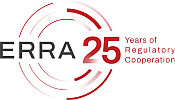Study on the Regulation of Electricity and Gas System Operators
A Study for The Netherlands Authority for Consumers and Markets (ACM).
The Netherlands is faced with the challenge of reaching carbon neutrality by 2050. This challenge requires substantial efforts from network operators and has prompted the energy regulator ACM to take a critical look at the way it organizes the regulation of network operators. It is important to obtain, at an early stage, an accurate picture of both, the bottlenecks and the opportunities with regard to the energy transition, arising from the regulation of network operators. In this regard, insights into the regulation of network operators in other European countries can be of great value. ACM has commissioned DNV Energy Systems (“DNV”) to obtain the insights.
The purpose of the study is to gather inspiration for instruments and new insights which could be considered in the Netherlands.
This is done by reviewing the main characteristics and effectiveness of the instruments used in the economic regulation of electricity transmission and distribution networks in selected countries. The list of countries is Belgium, Germany, Finland, Italy and Great Britain (main sample); and Norway, Australia and Emirate of Abu Dhabi (United Arab Emirates) (extended sample). Building on the findings from the analysis, we assess the applicability of regulatory instruments for the regulatory arrangements in the Netherlands.
The analysis reviews major properties of the regulatory instruments in the investigated countries. The instruments are grouped in the following regulatory areas: price regulation methods, OPEX and CAPEX classification, assessment methods, efficiency incentives, investment incentives, innovation incentives, supplementary incentives, forward-looking estimations, dealing with uncertainty and new thinking / new concepts.

